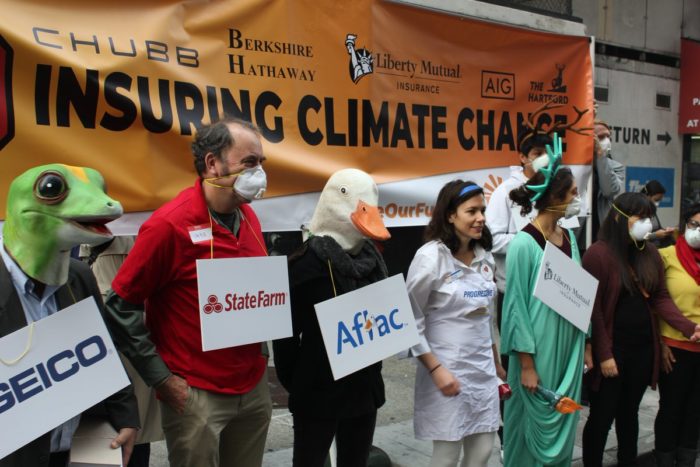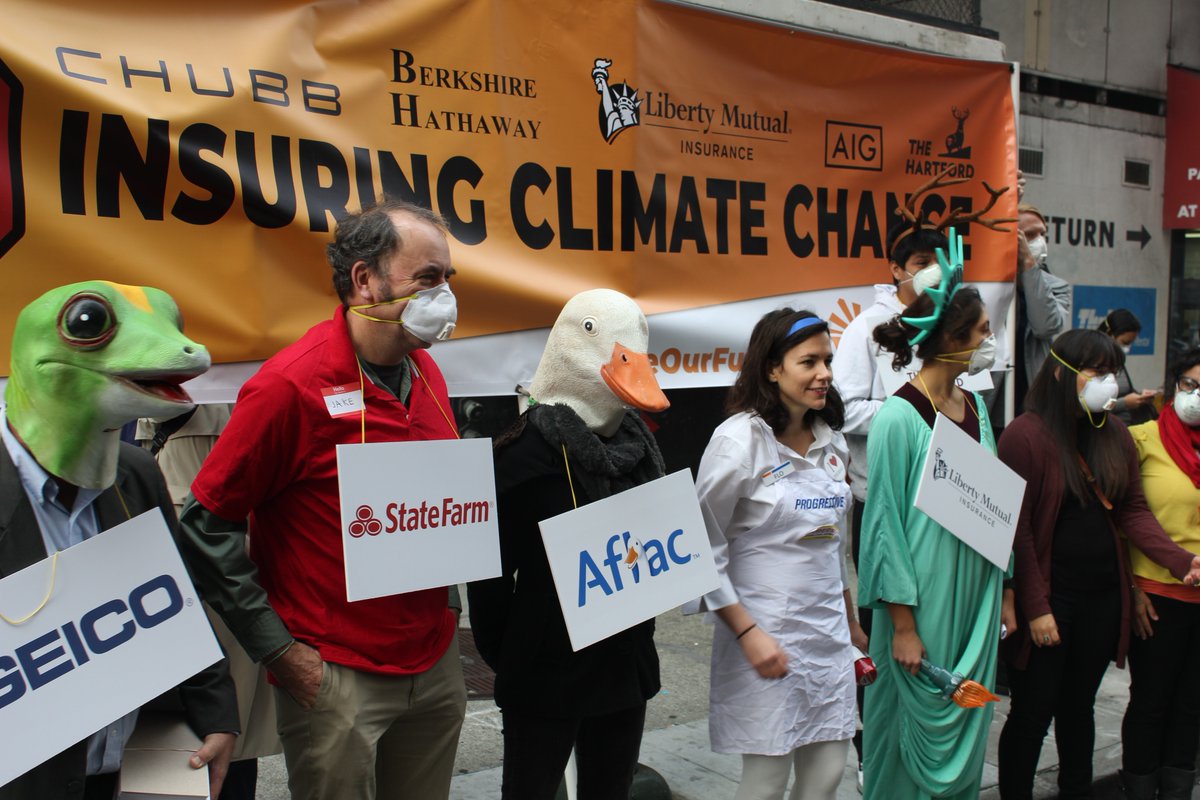You may be wondering, what the heck does insurance have to do with climate change?
Well, the insurance industry is supposed to protect us from risk. But when it comes to the greatest risk our planet and society faces – climate change – U.S. insurers are actively accelerating the climate crisis.
These companies have long flown the under radar when we talk about the major actors responsible for the climate crisis. That is, until now. RAN recently teamed up with leading climate, consumer, and environmental justice groups to take on on the U.S. insurance industry. The Insure Our Future campaign is calling on U.S. insurance companies to stop insuring and investing in fossil fuels.

Here are the top five reasons we’re going after U.S. insurers:
- Insurance plays a crucial role supporting fossil fuel projects. You can’t drive a car or buy a house without insurance. Likewise, without insurance, energy companies cannot build or operate destructive fossil fuel projects like the Keystone XL pipeline, coal-fired power plants, and fracking wells. Insurers can single-handedly stop the expansion and operation of most fossil fuel projects by simply refusing to insure them.
- Insurance companies are taking our money and investing it in fossil fuels. These companies collect customers’ premiums (that includes the money that you and I pay for car, home, and health insurance) and put that money into the stock market. It’s estimated that insurance companies have more than $450 billion (yes, billion with a b!) invested in coal, oil, and gas companies.
- Meanwhile, the insurance industry knows that climate change is here. U.S. insurers are abandoning customers who are on the frontlines of climate change. They are increasing the costs of insurance or withdrawing coverage entirely from regions experiencing climate impacts, such as the coast of Florida and wildfire-affected counties in California. The very same companies that refuse to protect communities dealing with the impacts of climate change are then turning around and propping up the fossil fuel industry.
- And it’s in the industry’s own self-interest to do something about it. The increased intensity and frequency of hurricanes and wildfires, combined with rising sea levels, means that more people and companies are filing insurance claims. The last few years have seen the biggest losses on record for insurance companies.
- Insurers in other countries are way ahead of us. In the past two years, our colleagues in Europe and Australia have secured victories in their countries: fifteen of the largest insurance companies now restrict insurance cover for coal projects and twenty-two have divested from coal. However, to date, no major U.S. insurer has made a similar commitment, which is why we are going after the American insurance industry.
This work builds on the bread and butter of RAN’s climate and energy team: pressuring financial institutions to cut off their support of fossil fuels. With your support, we’ll hold the industry accountable for its role in climate change and fight alongside communities resisting fossil fuel expansion.
Ready to join the fight? Join us to push these companies to get on the right side of history.
